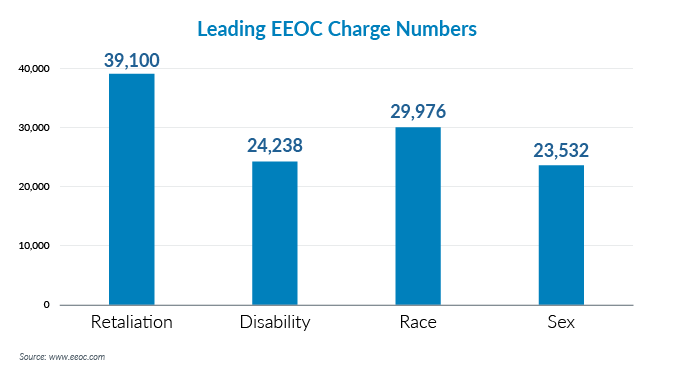-
Property & Casualty
Property & Casualty Overview

Property & Casualty
We offer a full range of reinsurance products and the expertise of our talented reinsurance team.
Expertise
Publication
Biometric Information Privacy – Statutes, Claims and Litigation [Update]
Publication
Inflation – What’s Next for the Insurance Industry and the Policyholders it Serves?
Publication
Human Activity Generates Carbon and Warms the Atmosphere. Is Human Ingenuity Part of the Solution?
Publication
Illinois Changes Stance on Construction Defect Claims – The Trend Continues
Publication
Generative Artificial Intelligence in Insurance – Four Aspects of the Current Debate
Publication
Battered Umbrella – A Market in Urgent Need of Fixing -
Life & Health
Life & Health Overview

Life & Health
We offer a full range of reinsurance products and the expertise of our talented reinsurance team.

Publication
Underwriting High Net Worth Foreign Nationals – Considerations for U.S. Life Insurance Companies
Publication
Group Term Life Rate & Risk Management – Results of 2023 U.S. Survey
Publication
Trend Spotting on the Accelerated Underwriting Journey
Publication
All in a Day’s Work – The Impact of Non-Medical Factors in Disability Claims U.S. Industry Events
U.S. Industry Events
Publication
Marginal Gains in the Medicare Supplement Market -
Knowledge Center
Knowledge Center Overview

Knowledge Center
Our global experts share their insights on insurance industry topics.
Trending Topics -
About Us
About Us OverviewCorporate Information

Meet Gen Re
Gen Re delivers reinsurance solutions to the Life & Health and Property & Casualty insurance industries.
- Careers Careers
EPLI and the EEOC – Employee Charges, Agency Initiatives and Emerging Issues

March 24, 2020
Alice Zelikson,
Jeffrey Weisel
Region: North America
English
The U.S. Equal Employment Opportunity Commission (EEOC) has recently released its statistical details for the 72,675 charges of workplace discrimination the agency received in the 2019 fiscal year. Since 2014, the number of charges filed with the EEOC had been increasing; however, starting in 2017 the number of annual charges is declining.1 A strong economy is the likely explanation.
Look at the latest leading charge numbers:

Once again, retaliation leads the frequency of charges. The expanding #MeToo movement continues to impact the workplace. In 2019, Uber paid $4.4 million to settle sexual harassment and retaliation charges. Uber entered into an agreement that holds it accountable and, going forward, positions the company to innovate and transform the rideshare industry as a model for instituting effective measures against sexual harassment and retaliation.2
The EEOC continues to provide detailed information concerning LGBT charges, which have continued to grow since its original tracking in January 2013. In 2019, there were 1,868 charges filed for LGBT-based sex discrimination, compared to 1,768 in 2016 and 808 in 2013. The monetary benefits have increased in 2019 to $7 million compared to $4.4 million in 2016 and $0.9 million in 2013. We are still awaiting the Supreme Court decision on the R.G. & G.R. Harris Funeral Homes matter. The Supreme Court will be ruling whether Title VII’s “sex” discrimination protections extend to prohibit discrimination based on gender identity.
EEOC Initiatives
A continuing area of EEOC focus is pregnancy being a barrier for equal treatment in the workplace. Although pregnancy-related charges in 2019 did not rise significantly in the past year, the monetary benefits (not including those obtained through litigation) increased dramatically in 2019 to $22.4 million from $16.6 million in 2018.
The EEOC also has several new initiatives that may impact the workplace.
- E-Race - The EEOC is focusing its efforts to ensure workplaces are free of race and color discrimination, which represent a combined total of 27,391 charges filed in 2019. The EEOC will focus on issues to reduce and process both race and color discrimination claims, including criteria and workplace barriers, strategies to improve administrative processing and litigation, and greater public awareness of race and color discrimination in employment.
- Disabled Workers - Through its LEAD program (“Leadership for the Employment of Americans with Disabilities”), the EEOC will address the declining number of federal employees with targeted disabilities with the goal to significantly increase this population. The EEOC continues to broaden its definition of what constitutes a disability. Under the EEOC’s new plan, the agency is focusing on job qualification standards and inflexible leave policies. In 2019, a Madison, Wisconsin jury awarded $5.2 million to a developmentally disabled, deaf and visually-impaired employee who worked for Walmart as a cart pusher. The jury determined Walmart failed to accommodate his disabilities and sent a message: $200,000 in compensatory damages and $5 million in punitive damages.3
- Non-Employees - Temporary workers, staffing agencies, independent contractors, and the on-demand economy are all changing the dynamic of the employer/employee relationship. Just because a policyholder’s staff are not on the payroll as permanent, full-time employees, this doesn’t mean an insured is absolved of responsibility for ensuring fair treatment under the law.
Issues Emerging Today
With the coronavirus impacting many areas of American life, including going to work, the EEOC may begin to see charges as a result. These charges could potentially include allegations of discrimination based upon race/national origin brought by individuals who are from, or appear to be from, countries where it is believed the virus is prevalent. In addition, charges may be brought by individuals who suffer an alleged disability as a result of the virus.
We are also monitoring to see whether the recent Harvey Weinstein guilty verdict will encourage additional individuals to file sexual harassment charges against employers, whether in Hollywood or on Main Street.
What this will mean for workers and future EEOC enforcement priorities will be answered in 2020 and beyond. Our EPLI team will be watching closely and sharing insights on how the new landscape affects insurers.
Endnotes
- Employee charge and other EEOC statistics from U.S. Equal Employment Opportunity Commission, www.eeoc.gov.
- Press Release, EEOC v. Uber, www.eeoc.gov.
- EEOC v. Wal-Mart Stores, Inc. and Wal-Mart Stores East, LP, Civil Action No. 3:17-cv-739.






